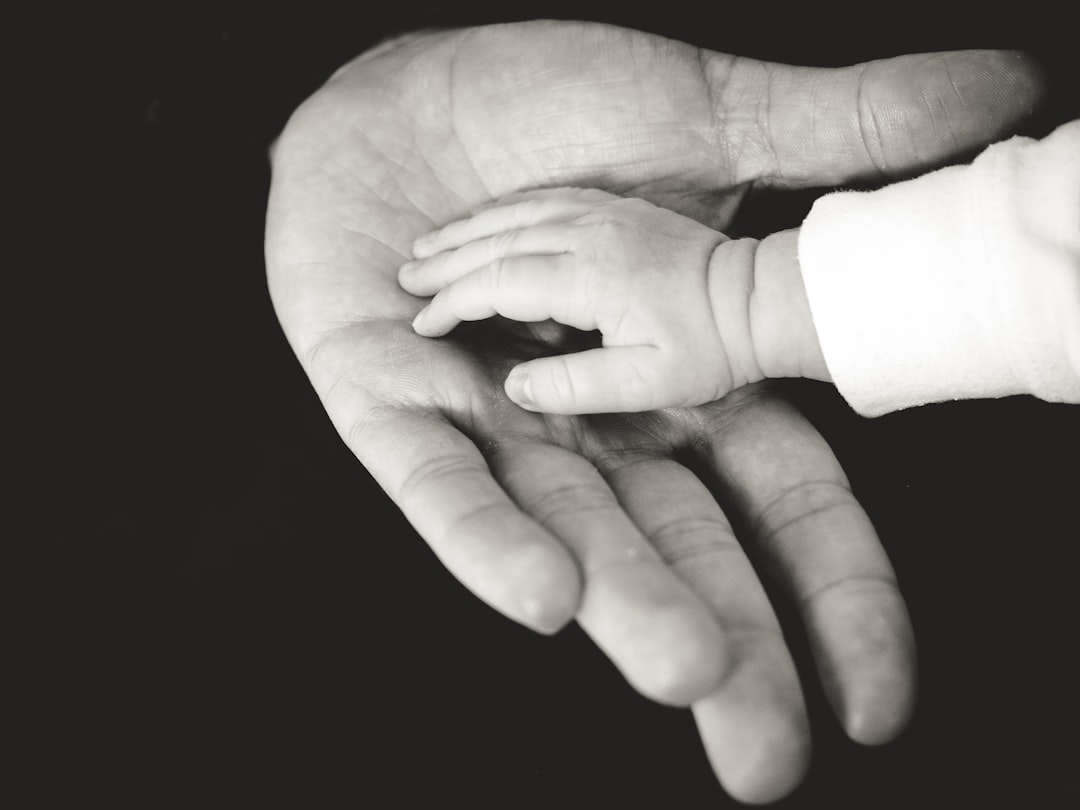Working Under the Conditions of New Parenthood
A Guest Post by Jon Najarian

All families without children are alike in their freedom from the obligation to keep alive another human being. All families with children are unique in the peculiar burdens and stresses of caring for an infant, toddler, or otherwise helpless young person.
I’m joking, of course. I don’t mean to equate childlessness with happiness or having children with being unhappy. And everyone, with children or not, feels unique demands on their time from work, from families, from friends, and from the countless other obligations that continually pull us away from the work we’d like to be doing or need to do.
But academics are protective of our time. One of the reasons I was drawn to academia—and I’m not sure I would have been able to articulate this as a young graduate student—was the freedom to work, mostly, where and when I wanted. When I was growing up, my family owned a grocery store, and we were tied down to a physical space and to a regular set of hours. Someone needed to be at the store every day, from 8am to 7pm. The store closed for a few select holidays, though almost never for more than one day at a time. If Christmas Day was on a Sunday, we would be open Monday morning.
My academic life is no less busy than the life my father built working at the store, but it’s far more flexible. I can take a morning off to see a friend who is in town and make up for it later that night. I can bring some work with me when I go out of town and maybe even stay an extra night or two. The store, in contrast, was busiest during the holidays, and that is when my teaching schedule winds down.
Like many academics, I love having the ability to manage my time. So it was particularly jarring when my partner and I brought home our child, Crosby, in May of 2021. Gone were the days when I could structure my time as I pleased. Early morning work sessions became nearly impossible after a restless night of bottle feeding. If I was working at night, it was not because I had spent the day relaxing but because I had spent the day keeping another human being alive. I ended up in academia because I like being able to determine my own work schedule, and suddenly I found that my schedule was no longer entirely my own.
Productivity and New Parenthood
I hesitate to provide any sort of straightforward guidance about how to be productive with young children. Do you have a partner who can help out with those newborn feeding sessions when you’re waking up every two hours? Do you have the financial resources to put your child in daycare for hours-long stretches at a time? Do you have family members who can watch your child while you attend an important conference? Do you have anyone who can help with all those new chores you never had to worry about before—changing diapers, picking up toys, moving once-worn and too-tiny clothes from the dresser into the storage bin, buying diapers, moving the storage bin to the basement, changing diapers, trying to find the storage bins when you realize some of the clothes or other objects might still be needed, buying diapers, replacing the storage bins once you’ve properly received whatever it was you need to retrieve, changing diapers, preparing meals for toddlers who have increasingly strong opinions about foods they don’t know they like, buying diapers, and so on, etc., etc., ad infinitum?
How you answer these questions will have an enormous impact on how you end up managing—that is, finding time for—your research and writing.
The infinitely varied situations that arise after bringing home a new baby make it inconceivable that anyone could provide concrete guidance for working under the conditions of early parenthood. “Get a babysitter” isn’t just unhelpful; it’s also problematic. It assumes a set of resources and a level of power that not everyone has, least of all new parents (who might also be contingent faculty).

My partner is a therapist, and often when I present what I think is a practical issue, I get a question about my state of mind: how does that make you feel? How do I feel taking care of a newborn or a toddler while trying to make time for my writing? I feel exhausted! I was exhausted before the child! I feel doubly exhausted now! I feel like I can’t think clearly or deeply if I’m overtired. I feel that if I don’t get enough sleep, I won’t be able to do meaningful work. I feel like the day after waking up five times in the middle of the night is a wash because I’m too tired to do anything important, and my work depends on being able to make rigorous use of my brain.
Last night, I slept on the floor next to my child’s bed, because he refused to close his eyes unless I was lying there, and every time I tried to stand up, he started crying and said, “Sit? Sit?" while rubbing the too-flat pillow, gesturing for me to lie down. I feel like I want to take a nap.
Sometimes rest is exactly what I need, and it’s important to give ourselves some grace while adjusting to life while caring for a young child. Overwork and burnout are very real for many of us, and many of us face a lot of pressure to continue to produce new research and writing. For me, one of the biggest cognitive adjustments of being a new parent is having to determine when I actually need rest and when I’m using the “I’m too tired” mantra too easily.
Am I really too tired?
The brilliance of my partner’s therapeutic questioning—"How do you feel?"—is that it disproves many of the reasons I “can’t” get any work done. While there are days when I truly don’t have the time to do a lot of writing, there are also a lot of days when I feel like I can’t work but, in reality, probably can. I’ve been thinking a lot about the psychological challenges of being a new parent and the many lies I tell myself about how it’s impossible to work with a new kid. The biggest one for me is the idea that I can’t work if I’m not well rested or overly tired. Of course, having a new child means being overtired a lot. I developed a more nuanced understanding of the word “harried” in the first few months after my child was born.

I’ve been trying (and sometimes failing, and sometimes succeeding) to develop two main rebuttals to the idea that I can’t work if I’m tired. The first is pragmatic and involves reminding myself how much academic work doesn’t require a perfectly rested brain. Even when I’m writing, which is in my intellectual imaginary the most strenuous and demanding part of my job, I try to remember that there’s a lot I can do when I’m “too tired to write.” Formatting citations, tracking down quotes, requesting books from Interlibrary loan, line-editing my sentences, making scans of chapters from the overdue book I’ve been meaning to return: all these tasks can be completed in the fugue state of early parenting. (Some of these tasks might actually be easier in the fugue state of early parenting…).
And the second response, which is conceptual rather than pragmatic, is to try to remember that the idea that I’m “too tired to write” is sometimes (though not always) untrue. I don’t mean to diminish the incredible demands that a new child can put on new parents. I can barely remember those early days, in part because—and I’m speaking anecdotally rather than scientifically—my brain wasn’t active enough to form lasting memories. When I look at pictures of my newborn, I’m often surprised by the young person I see in the photos. I can’t remember him looking like that.
And yet, for me, one of the hardest parts about having a new child was that I had a legitimate excuse not to do work. I had a perfectly understandable and very valid justification to procrastinate in all the ways I’ve often procrastinated. In those moments when I was finally able to sit down at my desk, with 45 minutes or an hour or two hours free of parenting obligations, it was all too easy to leave the Google Doc with the most recent version of some article or chapter unopened. “I had a rough night,” I could tell myself. “Any writing I do now will be junk anyway.” “Maybe I’ll get better sleep tonight, and I can start working on that for real tomorrow.” “I can barely think straight. There's no way I could get coherent sentences down on paper.” Not today, not today, not today.
Sometimes that’s true—sometimes I really am too tired to get anything down on paper. But I’ve found that even the act of trying, even for 30 minutes, can be useful. Some of my most productive writing sessions have come immediately after sessions where I tried to write and wrote nothing; it’s as if writing nothing, or putting to paper a few false starts, reveals to me what I should write next time. If we accept the metaphor of writing as a kind of archeological excavation, we might think of unproductive writing sessions as preliminary digs. Perhaps we set up the parameters of the dig site even if we don’t actually start digging. Tomorrow, at least, we’ll know where to dig.
I also need to continually remind myself that not everything I write when I’m “overtired” (which I’m putting in scare quotes to indicate the compromised status of the term) will be rubbish. This is especially true if I break up my writing into short but regular sessions rather than hours-long marathons. This is, of course, a good practice anyway, though I’ve found it to be something of a necessity since having a child. I don’t often have three- or four-hour chunks of uninterrupted work time, and I truly don’t have the mental energy to power through a writing session that involves reading several articles, taking notes, writing responses, and drafting a section of my own essay that incorporates that new reading. But I can usually get through half an hour of writing, even when I’m really tired.
Recently, I’ve started to notice all the ways in which working under the conditions of early parenthood has exposed other procrastinatory lies that I’ve tried to use to keep myself from writing: I can’t write after 2 p.m.; I can’t write after teaching; I can’t do any meaningful writing if I only have a 30- or 45-minute window of free time; I can’t write after mowing the lawn; I can’t write after visiting with my dad; I can’t write in public; I can’t write in private; I can’t... These are versions of the same story that I’ve been telling myself for most of my academic life, dating back to undergrad or even high school. Often, this story is untrue. (And yes, I have tried to convince myself that I can write neither in public nor in private.)
Again, I'm not arguing that we should be constantly overtired and overworked, and I’m not proposing that we ignore the signs that we really are too tired to work; rather, I'm urging us to recognize that we sometimes lean too far into procrastination and should be mindful of when excuses hinder our goals. The truth is that I can do a lot of meaningful work, even when I think I’m too tired to do so. I might even say that the work I’ve been doing as a new parent is more meaningful now that I have someone to share it with.
Jon Najarian is Visiting Assistant Professor of Writing and Rhetoric at Colgate University. He’s the editor of Comics and Modernism: History, Form, and Culture, which is available for preorder here. Other writing has appeared in Modernism/modernity, Contemporary Literature, Twentieth-Century Fiction, and American Literary History, among other venues.



